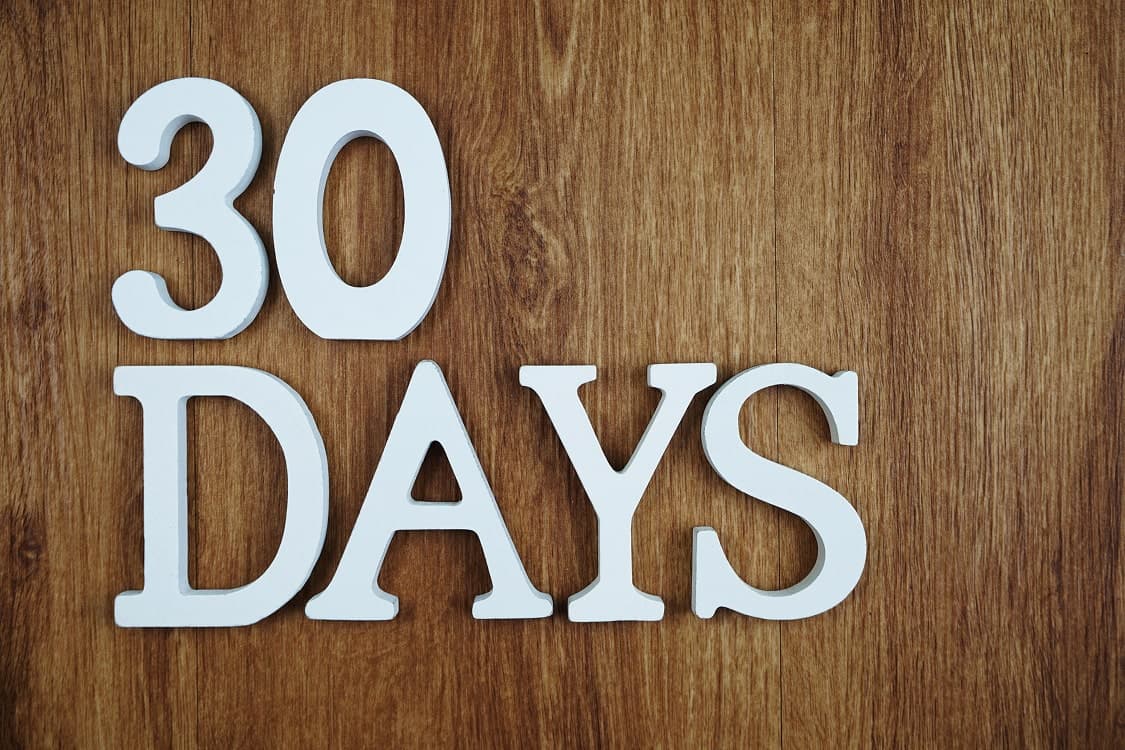The First 30 Days Of Sobriety

In This Article
The first 30 days of sobriety can feel overwhelming—physically, emotionally, and mentally. Your body is adjusting, your mind is clearing, and your habits are being rewritten.
The good news?
Small, intentional lifestyle changes can make a massive difference in how you feel and how sustainable your recovery becomes. Here are five changes that will have the biggest impact on your first month alcohol-free.
Prioritize Sleep: The Foundation Of Healing
Alcohol disrupts sleep cycles, preventing deep, restorative rest. In early recovery, your body is working overtime to repair itself, making quality sleep non-negotiable.
How to improve sleep:
- Set a consistent bedtime and wake-up time
- Avoid screens and blue light at least an hour before bed
- Try magnesium or chamomile tea to support relaxation
- Use blackout curtains or a white noise machine to create a restful environment
Why it works: Deep sleep helps regulate mood, repair the nervous system, and improve energy levels—critical for handling the ups and downs of early sobriety.
Hydrate Like Your Life Depends On It
Alcohol dehydrates the body, stripping essential electrolytes and leaving you feeling sluggish and mentally foggy. Replenishing hydration levels is one of the fastest ways to feel better in early recovery.
How to hydrate effectively:
- Start your morning with a large glass of water (add lemon for an extra boost)
- Aim for 80-100 oz of water daily, depending on your activity level
- Add electrolytes through coconut water or sugar-free electrolyte mixes
- Reduce caffeine and sugary drinks, which can contribute to dehydration
Why it works: Hydration flushes toxins, improves brain function, and reduces withdrawal-related fatigue and headaches.
Practice Mindfulness: Get Comfortable With Your Thoughts
Drinking often serves as an escape from stress, anxiety, and emotions. When alcohol is removed, those emotions don’t disappear—they become more noticeable. Practicing mindfulness can help you navigate them instead of avoiding them.
How to incorporate mindfulness:
- Start with just 5 minutes of deep breathing or meditation each day
- Use guided meditation apps like Headspace or Insight Timer
- Try mindful movement like yoga or stretching to stay connected to your body
- Keep a daily journal to track emotions, cravings, and progress
Why it works: Mindfulness helps retrain your brain to sit with discomfort instead of numbing it, making it a powerful tool for long-term recovery.
Replace Alcohol With Something That Feels Rewarding
Drinking isn’t just about the alcohol—it’s about habit, ritual, and routine. Removing it without replacing it can leave a void, making cravings harder to resist. Having a go-to replacement drink and activity can help retrain the brain.
How to replace alcohol in your routine:
- Find a new go-to drink: NA beers, sparkling water, tea, or kombucha
- Create an evening ritual that signals relaxation (reading, listening to music, or a hot shower)
- Swap alcohol-related social outings for new activities—hiking, a new hobby, or coffee with friends
Why it works: Replacing the habit of drinking with something new helps break the psychological connection between alcohol and relaxation.
Share Your Journey: Vulnerability Creates Strength
One of the biggest mistakes in early recovery is trying to do it alone. Whether it’s a support group, therapy, or a trusted friend, sharing your experience builds accountability and makes the process less isolating.
Ways to share and find support:
- Join a recovery group like SMART Recovery, AA, or online communities
- Be open with a close friend or family member about your journey
- Work with a therapist or
- Document your progress privately through journaling or voice notes
Why it works: Vulnerability strengthens connection. When you open up, you gain support, reduce shame, and make it easier to stay committed.
Conclusion
The first 30 days of sobriety are about more than just avoiding alcohol—they’re about rebuilding yourself.
Prioritizing sleep, staying hydrated, practicing mindfulness, replacing old habits, and sharing your journey can make the difference between struggling and thriving in early recovery.
Are You Drinking Too Much?
Is drinking affecting your job? Is alcohol harming your health or relationships? Does your drinking worry you? Ever tried to drink less but failed?
If any of this sounds familiar, and if AUD runs in your family, Oar Health might be right for you. Oar Health offers medication FDA-approved for the treatment of alcohol problems. A daily pill to drink less or quit.
About The Author
Jesse is the founder of Altum Fitness and host of the Sober Strength podcast. He is a USMC veteran, certified fitness trainer and health coach, and former healthcare executive. Jesse started Altum Fitness in 2023 with the mission to help people discover and maintain healthy habits to live deep, strong, meaningful lives. Jesse resides in Colorado with his wife, Meghan, and their three beautiful children.
Related Articles
- How It Works
- Alcohol & Health
- Alcohol Misuse & Alcohol Use Disorder
- Strategies to Drink Less or Quit
- Treatment Options
- Medication-Assisted Treatment
- Recovery Stories
- Member Stories
- Moderation Stories
- Sobriety Stories
- ¹ Oar Health membership plans include access to the Oar Health platform, virtual consultations with a healthcare professional, and medication if prescribed by a healthcare provider. 3 month membership plan costs $297, equating to $99/mo.
- ² Self-reported by members after 6 months of Oar Health membership.
- ³ Verywell Health survey of Oar Health members, published March, 2023.
- ⁴ Prescription medication is available only if prescribed by a licensed clinician.
- ⁵ Compounded medications are prepared based on a prescription from a healthcare provider. They are not reviewed by the FDA for safety or efficacy.




